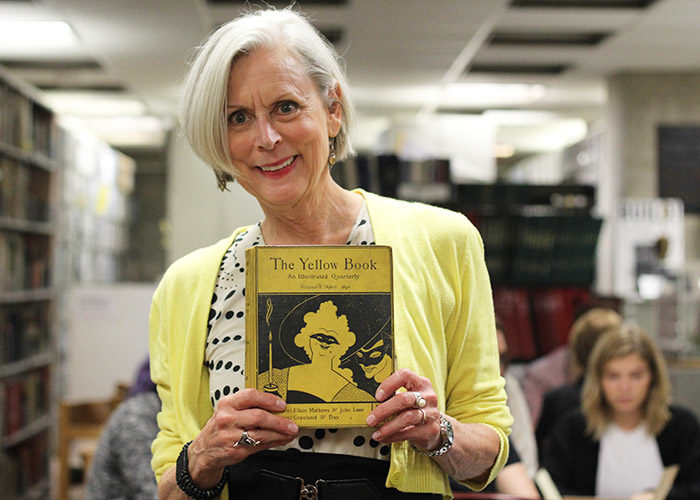Seven Ryerson faculty members received Social Sciences and Humanities Research Council (SSHRC) Insight Grants this month. Together, they secured over $1.2 million in new funds that will aid them in their research endeavors – from the child care deficit to queer culture and feminism.
The Ryersonian spoke with some of the grant winners about their victories and how the new funding will support their research.
Rachel Langford, Associate Professor, School of Early Childhood Studies

Rachel Langford, associate professor in the School of Early Childhood studies, is one of the recipients for the SSHRC Insight Grant. (Isabelle Docto)
Q: How do you feel about winning the SSHRC Insight Grant?
A: Well, it’s a wonderful opportunity to embark on research that builds on an earlier SSHRC research project, which looked at how the professionalization of early child educators in Canada has affected the Canadian child care advocacy movement in Canada. The new project builds on the findings and what questions remain unanswered from that project.
Q: Why do you think the research you’re doing is important?
A: Well, it’s important for two reasons. There is what is called a care crisis in Canada. What that means is that a significant number of families are not able to access high quality affordable childcare across Canada.
The second reason, and related to the care crisis, is that there is something called a care deficit. That means that there aren’t enough people to care for young children in childcare settings because the work is poorly paid and highly stigmatized.
Q: What do you want people to learn from your research?
A: I hope that people acquire a greater understanding about the care crisis and care deficit and that we all learn how to communicate the importance of making care central to social policy in Canada.
Lorraine Janzen Kooistra, Professor, Department of English

Lorraine Janzen Kooistra, a professor in the Department of English, is one of the recipients for the SSHRC Insight Grant. (Isabelle Docto)
Q: How do you feel about being awarded the SSHRC Insight Grant?
A: I’m thrilled because it means the work that my colleague Dennis Denisoff and I have been engaged with since 2005 is going to go to its next stage. That means not only will we be able to contribute to research in the field, but also that we’ll be able to train and advance the careers of a lot of our research assistants.
Q: Tell us a little bit about the research you’ll be conducting.
A: I was coming to Ryerson in 2005 to be chair of English. Dennis was already at Ryerson. We were both Victorian scholars and this is just the start of when the digital humanities were beginning, which is a field we were both really intrigued to work in. So, we basically went out to dinner and said we want to collaborate on a digital humanities project together. We thought about where the intersection of our interests lied and it was on the Yellow Book, which is the first 1890’s periodical that we’re making a digital edition of.
We’re looking at digital expression as well as verbal expression in these magazines and then the diversity of the actual historical individuals who contributed.
Q: What do you hope people learn from your research?
A: Methodologically, we’re hoping that people learn how to mark up data in ways that don’t erase historical identities of individuals. That’s what makes things searchable in a database because they’re tagged in a particular way. So, a lot of tagging is kind of one thing or the other. For example, male or female. But what if someone identifies as female, but is biologically male? If you don’t mark up the complexity of the identity, then you’re losing part of it.
Historically and critically, we’re keen to bring this important network of people both politically and artistically in their time period to scholarly knowledge. We want to engage in issues that are still important to us today that have to do with national and personal identity, queer culture, and feminism.
*Interviews have been condensed and edited
Isabelle Docto is a multimedia journalist who's lacking in height, but not in perspective. Follow her on twitter @IsabelleDocto.

